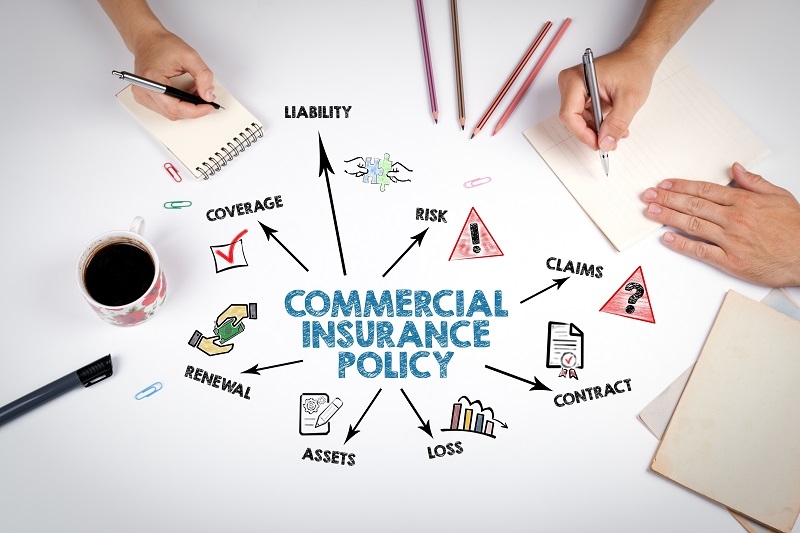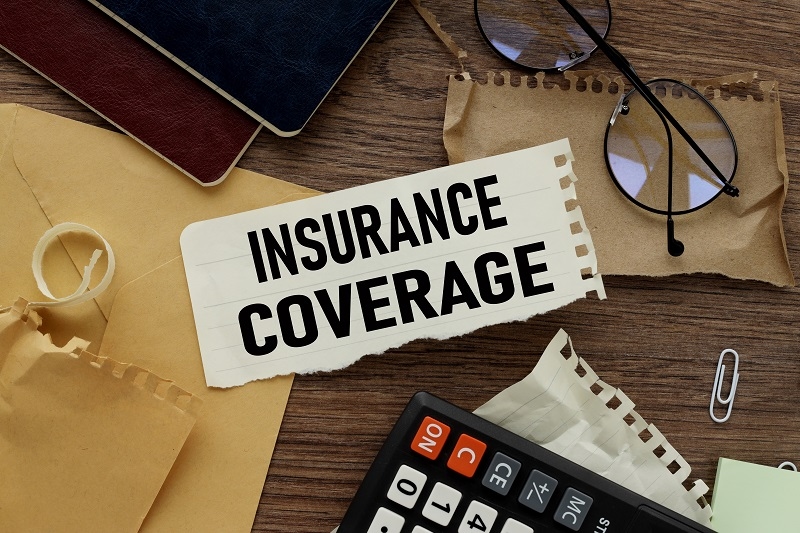
All businesses—large or small, regardless of the nature, wherever the locale—are dependent on property. Whether it's a small suite of offices, an office skyscraper, or a warehouse full of inventory, your company's physical assets are crucial to its function. And those assets are subject to a whole host of dangers, from flood and fire to theft and vandalism. Which is why a grip on the cost of commercial property insurance isn't just a good idea—it's essential. The importance of commercial property insurance cannot be unseen.
This blog explains more than two dozen reasons why commercial property insurance is every business owner's necessity, how it covers property and other fixed assets, how it provides continuity in case of disruptions, and how it safeguards your long-term assets. Let’s learn about building protection, business interruption, asset loss prevention, physical damage claims, real estate coverage and more.
Insurance is not only a regulatory requirement—a lifesaver is what it is. The greatest thing about commercial property insurance is that it buffers your business against unforeseen events that could result in astronomical financial loss. It is inconceivable to lose your shop, stock, or computer equipment overnight in a fire or disaster. Having to start everything from scratch without insurance would not only be expensive but would take months—if not years—to achieve.
Commercial property insurance guards against physical loss, like rebuilding or repairing buildings, furniture, equipment, and inventory, and even outdoor fixtures like landscaping or signs. It provides the peace of mind that comes with knowing that if something does go wrong, you won't be paying for it by yourself. When catastrophes strike, the insurance helps businesses bounce back fast and with minimal loss. That kind of security is why it's a cornerstone of every business's risk management.
When you consider business property, the building is the first thing that you think about. It is also the most expensive. Building insurance is one of the basics of business property insurance. Insurance on the physical building where your business operates is a necessity if you are renting or if you own the building.
Your business assets go far beyond the physical structure. Equipment, computers, inventory, raw materials, and supplies are equally valuable. A well-structured commercial property insurance policy also focuses on asset loss prevention—making sure that if your assets are damaged or stolen, you’re not left high and dry.
Not all loss is visible. Very often, the worst loss a business can experience is the loss of income while it is closed involuntarily. That is what business interruption insurance is for.
In the larger scheme, commercial property insurance ranks higher when you consider that it doesn't just replace what you lost—it keeps you in business during the recovery.
One of the most significant reasons businesses purchase commercial property insurance is to insure against physical loss. This includes damage by fire and smoke, water damage, electrical losses, vandalism, and adverse weather conditions. These can ruin your business operation if you do not have insurance to fall back on.

If you own commercial property—a small office building or a large shopping mall—then real estate coverage is your top priority. This part of commercial property insurance safeguards your long-term investment in commercial real estate against the unforeseen loss or reduction in value caused by damage.
Any physical issues, no matter how small, reduce the value of the property. A well-insured, well-maintained property will be more appealing to tenants, buyers, and financiers. With property insurance, you're safeguarding your property so that it will be worth something in the future, and you're covered for repair and restoration expenses after accidents like floods, fire, or structural damage.
This kind of protection adds stability to your investment portfolio and reassures stakeholders—including partners, tenants, and lenders—that your property is managed with care. The importance of commercial property insurance is even more evident when you’re managing or renting out commercial real estate that generates regular income.
There are no two businesses alike. Commercial property insurance is not a one-size-fits-all proposition. You can and must tailor your coverage to where you're located, what your business is, the value of the property, and the special kinds of risk involved in what you're doing.
For instance, a factory would need extra protection for high-cost and dangerous material equipment. A restaurant would need more fire coverage and food spoilage protection. A computer company would need data center and server coverage. Whatever it is that your business does, the underlying theme that runs through all of the above illustrations is the need for commercial property coverage as the protection that you need. Well customized, your insurance policy is your firm's asset, not a cost.
When you total up all of the benefits—property protection, business interruption insurance, prevention of asset loss, physical damage claims, and real estate coverage—it's simple to recognize that business property insurance is valued at more than dollars and cents. It provides stability to your organization. It allows you to forecast growth without going crazy in the process. It eliminates the financial and mental burden of unforeseen events.
The advantage of business property insurance also extends into the way you conduct relationships with investors, lenders, and even customers. A properly insured business presents an image of prudence and responsibility. It sends a message to the stakeholders that you are serious about risk management, and this can enhance credibility and confidence.
In a world today where nothing is sure, insurance isn't an afterthought—it's a cornerstone. The value of commercial property insurance cannot be overemphasized. From flood and fire to human mistakes, there are innumerable dangers faced by the physical properties that drive your business. Without the proper protection, one event can lead to irreparable harm.
By purchasing hard building coverage, preparing for business interruption, prioritizing asset loss prevention, and remaining sensitive to physical damage claims and real estate coverage, you have your business safeguarded from all sides. Insurance is no longer a policy, but now your business partner.
All business owners, whether first-time businesspeople or those with established businesses, need to take property insurance extremely seriously. Don't wait for tragedy to strike. Invest in protection today and look forward to a better tomorrow.
This content was created by AI